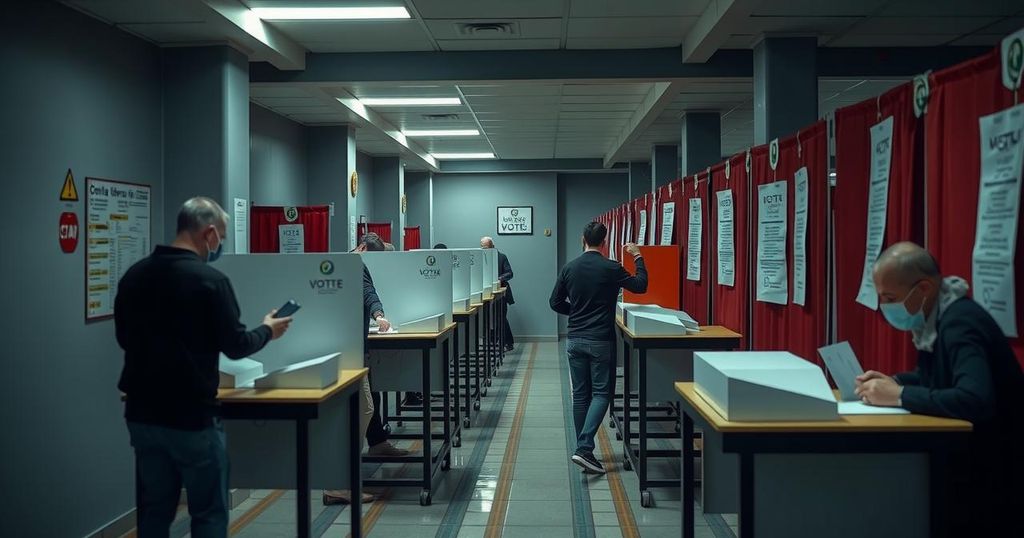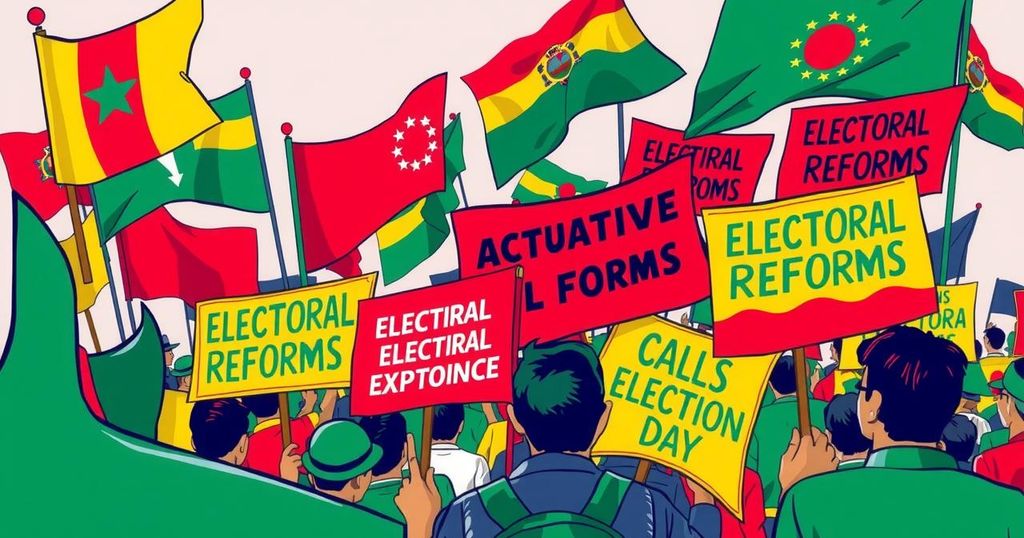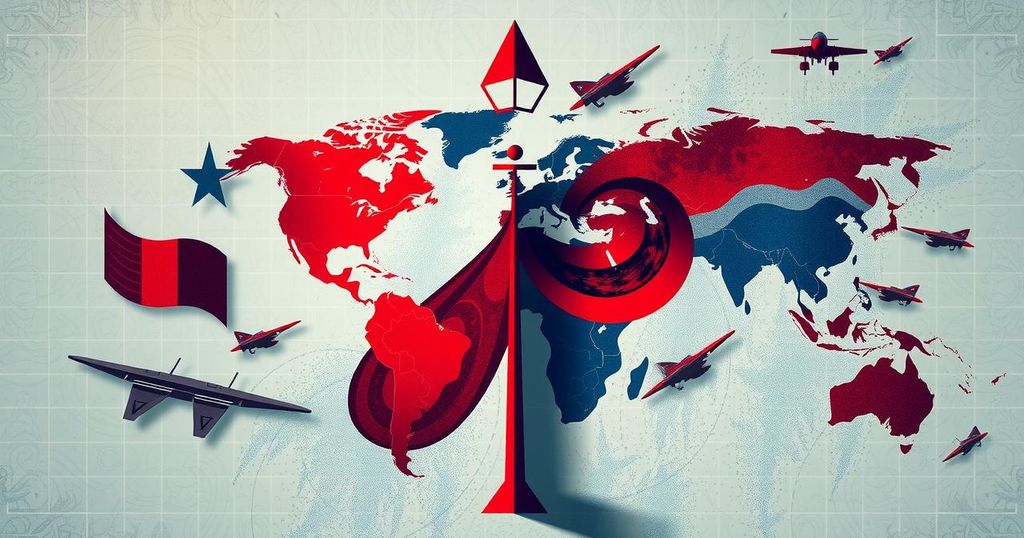Uruguay’s Presidential Election: A Tight Race Between Ruling and Opposition Candidates
Uruguay’s presidential election saw Álvaro Delgado of the ruling conservative coalition and Yamandú Orsi from the leftist Broad Front in a close runoff. Polls indicated a tie with a significant portion of voters undecided. Both candidates focused on issues like crime and economic stability as they tried to engage a disenchanted electorate.
On a pivotal Sunday in Montevideo, Uruguay, voters participated in the second round of the presidential election amid an exceptionally close race between Álvaro Delgado of the ruling conservative party and opposition candidate Yamandú Orsi from the left-leaning Broad Front. Neither candidate secured an outright majority in the initial voting held on October 27, leading to this runoff. The election races have been tied, with various polls indicating voter indecision as both candidates have struggled to engage the electorate effectively.
The current election reflects a departure from the polarized political climate seen in other countries, as both candidates maintain broad consensus on fundamental issues like social spending and income inequality. However, the rising concerns over crime in Uruguay have become a focal point in candidates’ campaigns, with Delgado proposing stringent crime policies contrasted by Orsi’s community-centered approach. Delgado seeks to extend the policies of the current administration, boasting an economy predicted to grow 3.2% this year, whilst Orsi aims to represent a progressive shift reminiscent of former President José Mujica’s legacy.
As the polls closed, a sense of anticipation loomed over the nation, reminiscent of previous contentious elections. Both candidates expressed desires for a cooperative transition, regardless of the outcome. Their mutual respect for democratic processes underlines a shared commitment to unity in an increasingly polarized political atmosphere. The final vote count may take days, keeping Uruguayans on edge as they await the official results from this consequential election.
Uruguay’s current presidential election follows a historical context marked by a transition from 15 years of leadership by the Broad Front to a center-right government under President Luis Lacalle Pou. With the economy showing signs of resilience and growth since then, this election presents significant stakes for both the ruling coalition and the opposition. Voter turnout and engagement in the second round are critical as many citizens remain undecided, highlighting a subtle apathy amidst the ongoing political discourse.
The electoral battle in Uruguay represents a crucial moment for both the ruling party and the opposition, indicating shifts in voter sentiment and priorities. As both candidates strive to secure victory, their respective platforms reflect broader societal issues, from crime to economic stability. Ultimately, this runoff is not merely a referendum on the candidates but also a reflection of the citizens’ aspirations for the future of Uruguay.
Original Source: gazette.com




Post Comment